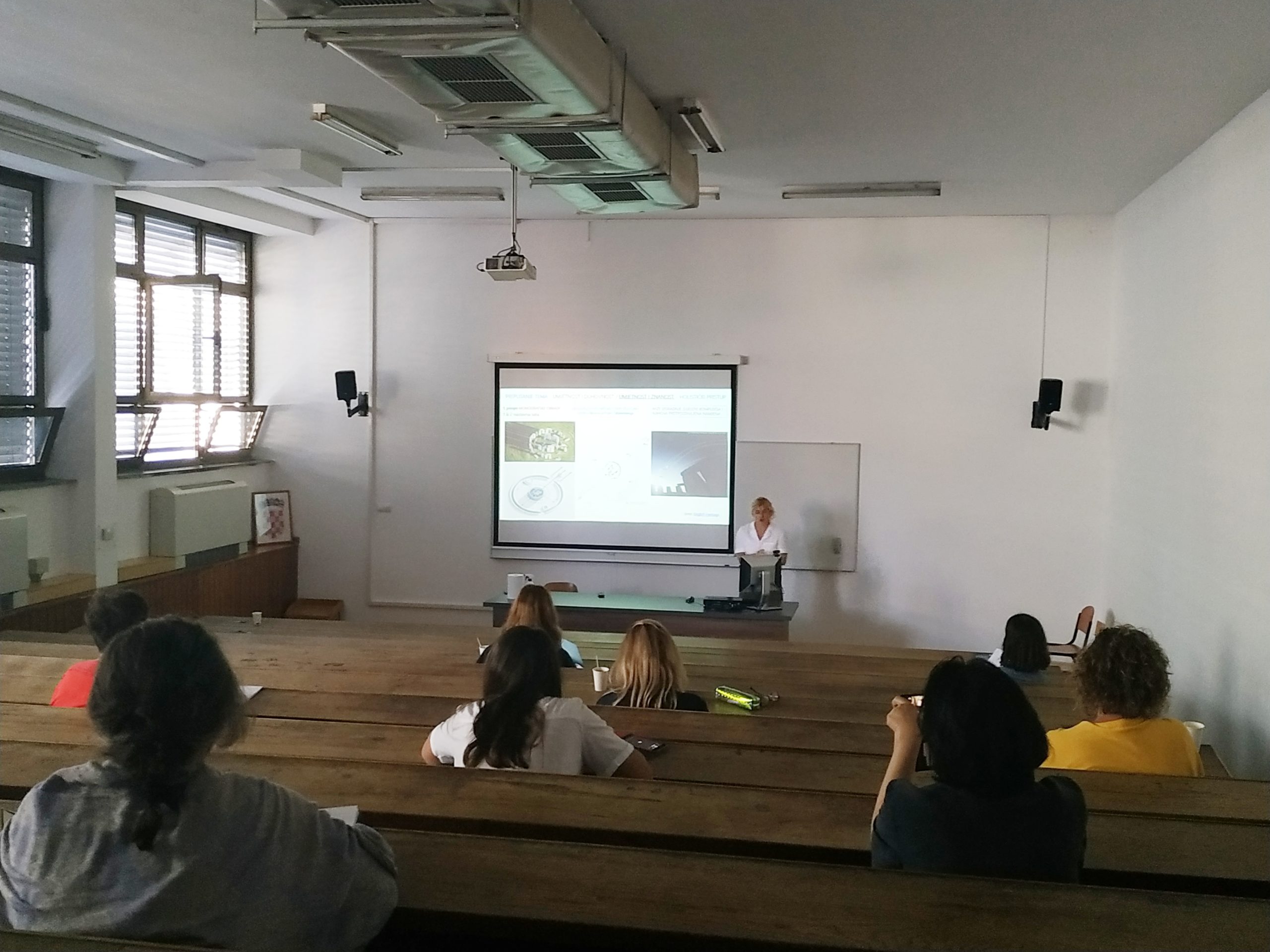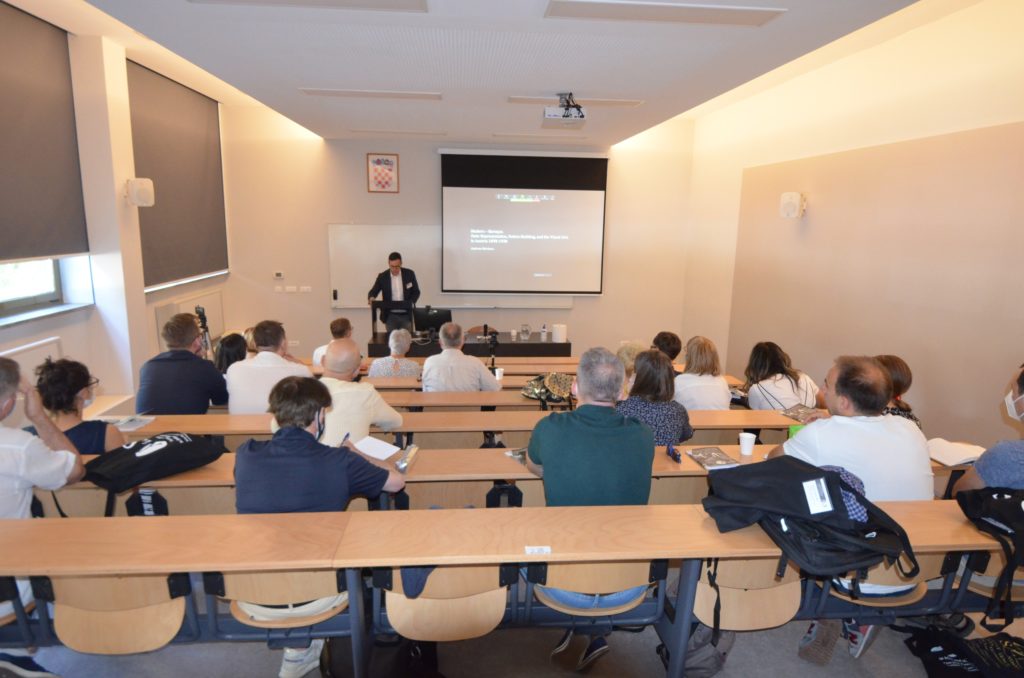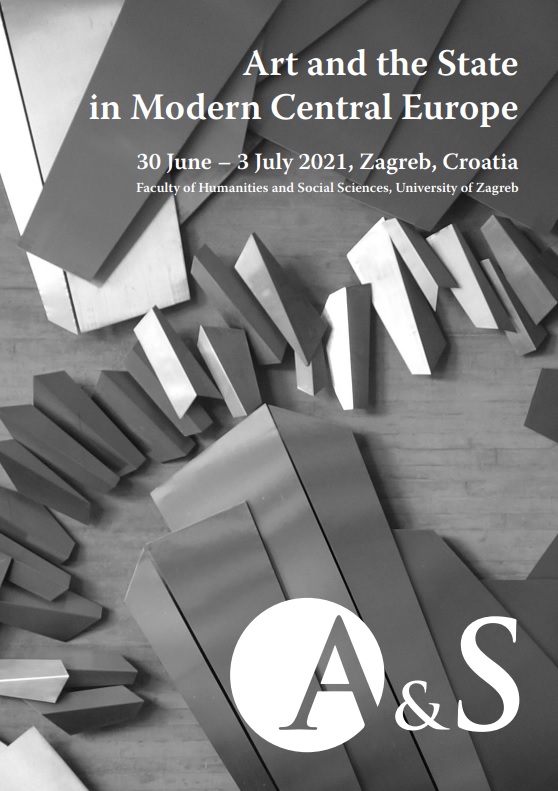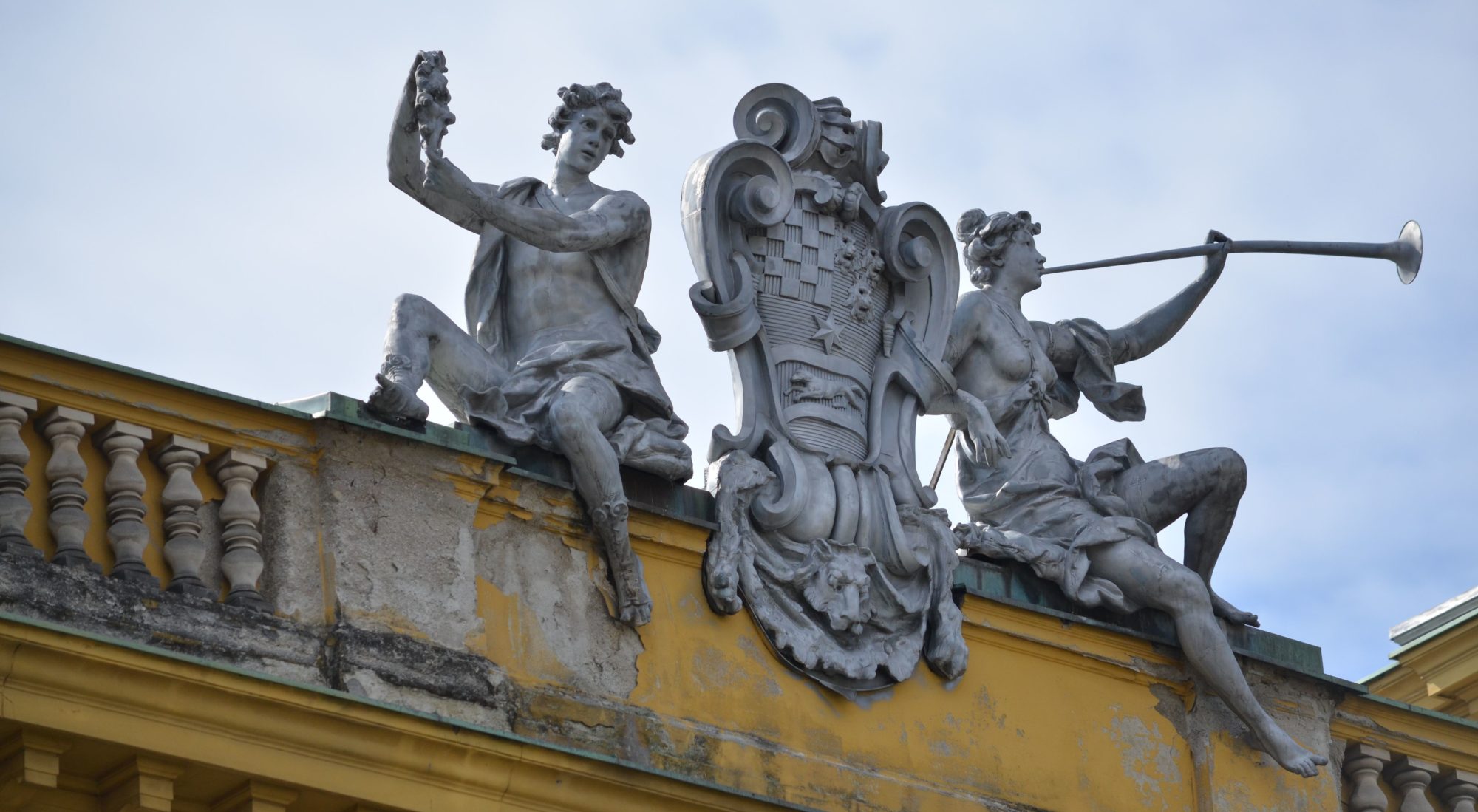Radionica: Utjecaj suvremenih obrazovnih politika na učenje i poučavanje likovne umjetnosti
(obrazovne strategije i modeli), Zagreb, Filozofski fakultet, 10.9.2021.

Na Filozofskom fakultetu Sveučilišta u Zagrebu 10. rujna 2021. održana je radionica za profesore likovne umjetnosti pod nazivom Utjecaj suvremenih obrazovnih politika na učenje i poučavanje likovne umjetnosti (obrazovne strategije i modeli), organizirana u suradnji s Agencijom za odgoj i obrazovanje. Organizatorice i voditeljice radionice bile su suradnice na projektu, dr. sc. Josipa Alviž i dr. sc. Jasmina Nestić, a osim njih na radionici je izlaganje održao i prof. dr. sc. Frano Dulibić, također suradnik na projektu.
Program radionice: Radionica_program
Međunarodna konferencija: Art and the State in Modern Central Europe (18th – 21st Century), Zagreb, Filozofski fakultet, 30.6. – 3.7.2021.

Na Filozofskom fakultetu Sveučilišta u Zagrebu od 30. 6. do 3. 7. 2021. održan je u sklopu projekta znanstveni skup Art and the State in Modern Central Europe. Sveukupno na skupu je održano 81 izlaganje. Skup je bio takozvanog hibridnog karaktera – dio sudionika držao je izlaganja uživo, a dio putem weba. Svi suradnici na projektu sudjelovali su izlaganjem na znanstvenom skupu.
Program skupa i knjižica sažetaka dostupni su na sljedećemu linku: https://www.academia.edu/49357600/Art_and_the_State_in_Modern_Central_Europe_18th_21st_Century_Programme_of_the_Conference_and_Book_of_Abstracts_final_version_Zagreb_June_30_July_3_2021_
A&S_Programme and Book of Abstracts

New Art and the State Conference Dates
Dear participants,
You are probably aware of the current situation with the Covid-19 pandemic and the fact that Croatia, as well as other countries in Europe and beyond have been witnessing a rising number of new cases.
Since it is impossible to predict the situation in September, due to the safety of us all, we’ve decided, prompted by the comments some of you left in the questionnaire to postpone the conference to next year and hold it onsite, instead of online (of course, we will leave the possibilty for those that will not be able to come to held their presentation online).
We have chosen this path because we feel that having a completely virtual conference would not yield the same results, or bring the same sort of satisfaction we usually get from attending these events. We choose the old normal!
NEW DATES: 30 June – 3 July 2021.
SUBMISSION GUIDELINES
Paper proposals should contain author(s)’s name(s), title and the body of text,
written in English, which should not exceed 400 words and a short author’s biography not
longer than 250 words.
Proposals should be sent to art-state@ffzg.hr
Deadline for the submission of new proposals is 1 March 2021
Contributors will receive notification of acceptance by 15 March 2021
The official language of the conference is English.
CONFERENCE FEE DEADLINE: 15 June 2021; early registration 1 June 2021
We apologize for any inconvenience this decision to postpone might cause you.
We would like very much to meet you, or see you again, next year in Zagreb.
Conference organizers
Conference: art-state.ffzg.unizg.hr
CFP: Art and the State in Modern Central Europe (18th – 21st Century)
Faculty of Humanities and Social Sciences, University of Zagreb
Zagreb, Croatia, 8-11 July 2020
Deadline for the submission of proposals: 15 January 2020
https://art-state.ffzg.unizg.hr/
Attempts to explore and define in more detail, both diachronically and synchronically, relationships and mutual influences between state bodies and art production, communication, education and reception have for decades formed an important part of numerous explorations in various academic disciplines such as art history, history, anthropology, sociology, education etc. The conference aims to provide insights into the current knowledge and interpretations of these relations from the 18th century to the present day, i.e. from the period in which Europe states went through intense centralization, leading to the growth of their influence on artistic production, public cultural and artistic institutions and education. In all these contexts the term “state” is taken to stand for a politically organized body of people usually occupying a definite territory and the political organization of such a body of people (Merriam Webster Dictionary).
Regardless of whether they were monarchies, republics, federations or centralized states, state bodies played an extremely important role in the production of art and in the institutionalization of knowledge, culture and art in all parts of Europe and throughout the aforementioned period. By fabricating its visual identity, commissioning works from artists whom it considered close, and censoring those segments of art production that it judged potentially dangerous to its survival, the state has largely been shaping the art scene in all parts of Europe. Additionally, states’ cultural and educational policies have influenced (and still does) the shaping of knowledge about the arts and teaching content in the field of art (history) on all educational levels.
The conference therefore welcomes contributions that deal with approaches to interpretation of these phenomena and various topics in the broad field of art history (painting, sculpture, applied arts, graphic design, photography, architecture, urban planning, curricula and study programmes in art history, etc.) but also other humanities disciplines.
The contributions could address the following topics:
- Representation, propaganda, image-making in European states
- Art and changes of state borders
- Art commissioning policies
- Control of art production through censorship
- State-sponsored artists
- State-funded education of artists
- Public sculpture and the state
- Public space furnishing campaigns
- Preservation of architectural heritage
- Formal and informal education and promotion of artistic and cultural literacy
- State policies and the acquisition of artworks for public museums and other institutions
- Architecture and state authorities
- Interstate artistic projects
- Art and war
- Art in totalitarian and democratic regimes
- Artists as social critics
- Church and public officials as art commissioners
- Institutionalization of knowledge, culture and arts
- Cultural and educational policies, national identity and visual arts
- State Policy and Strategies of Designing Everyday Life
- Art market, illegal trade and counterfeit art
As a topic that can provide almost limitless possibilities for reviewing, expanding and deepening current understandings, other issues concerning the complex relations between art and the state can also be touched upon within the given topics.
The Art and State in Modern Central Europe international conference will take place at the Faculty of Humanities and Social Sciences, University of Zagreb, from 8 to 11 July 2020. It will be organized within the project “Art and the State in Croatia from the Enlightenment to the Present”, IP-2018-01-9364, funded by the Croatian Sciences Foundation.
SUBMISSION GUIDELINES:
Paper proposals should contain author(s)’s name(s), title and the body of text, written in English, which should not exceed 400 words and a short author’s biography not longer than 250 words.
Proposals should be sent to art-state@ffzg.hr
Deadline for the submission of proposals is 15 January 2020.
Contributors will receive notification of acceptance by 5 February 2020.
The official language of the conference is English.
